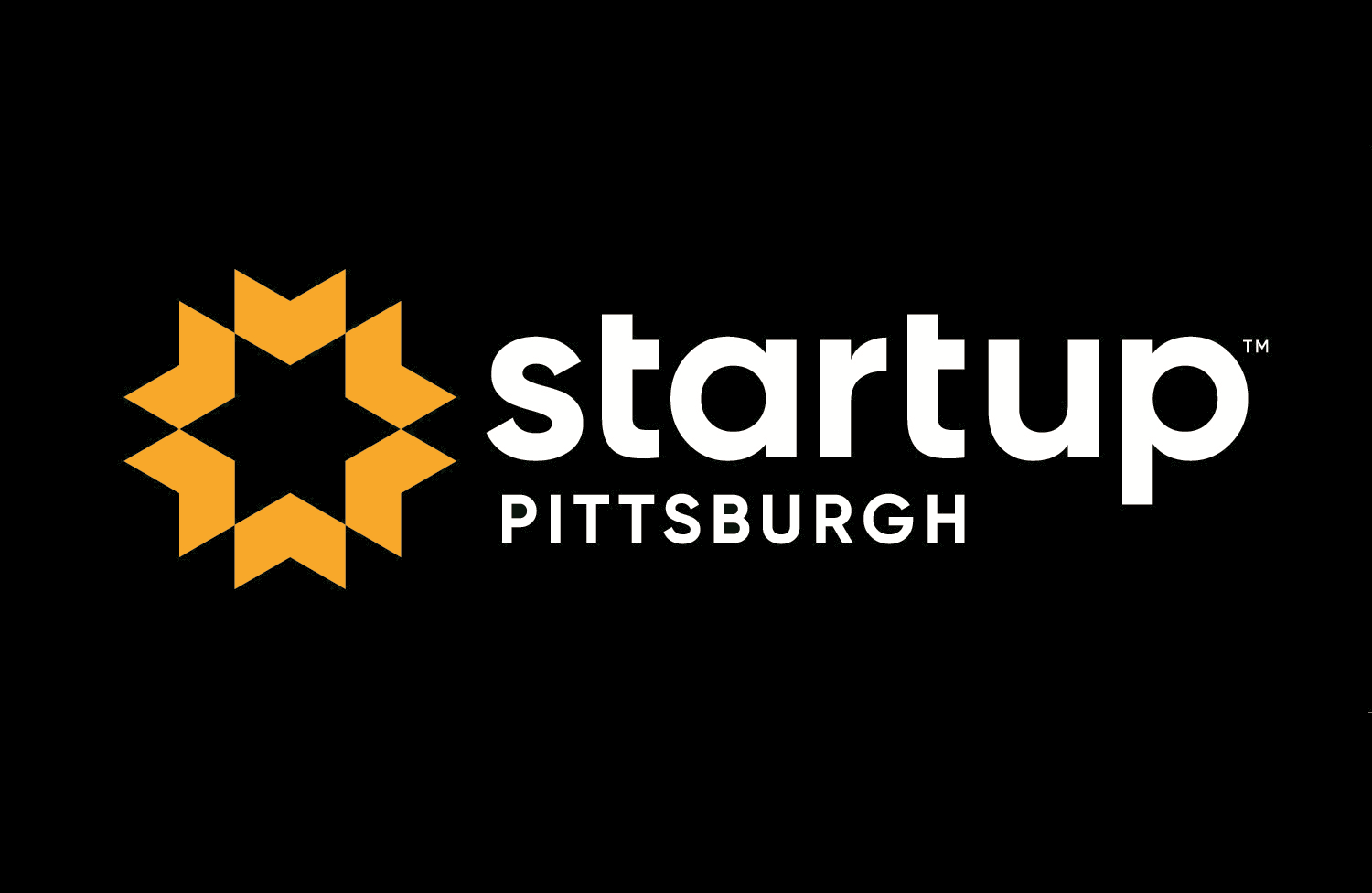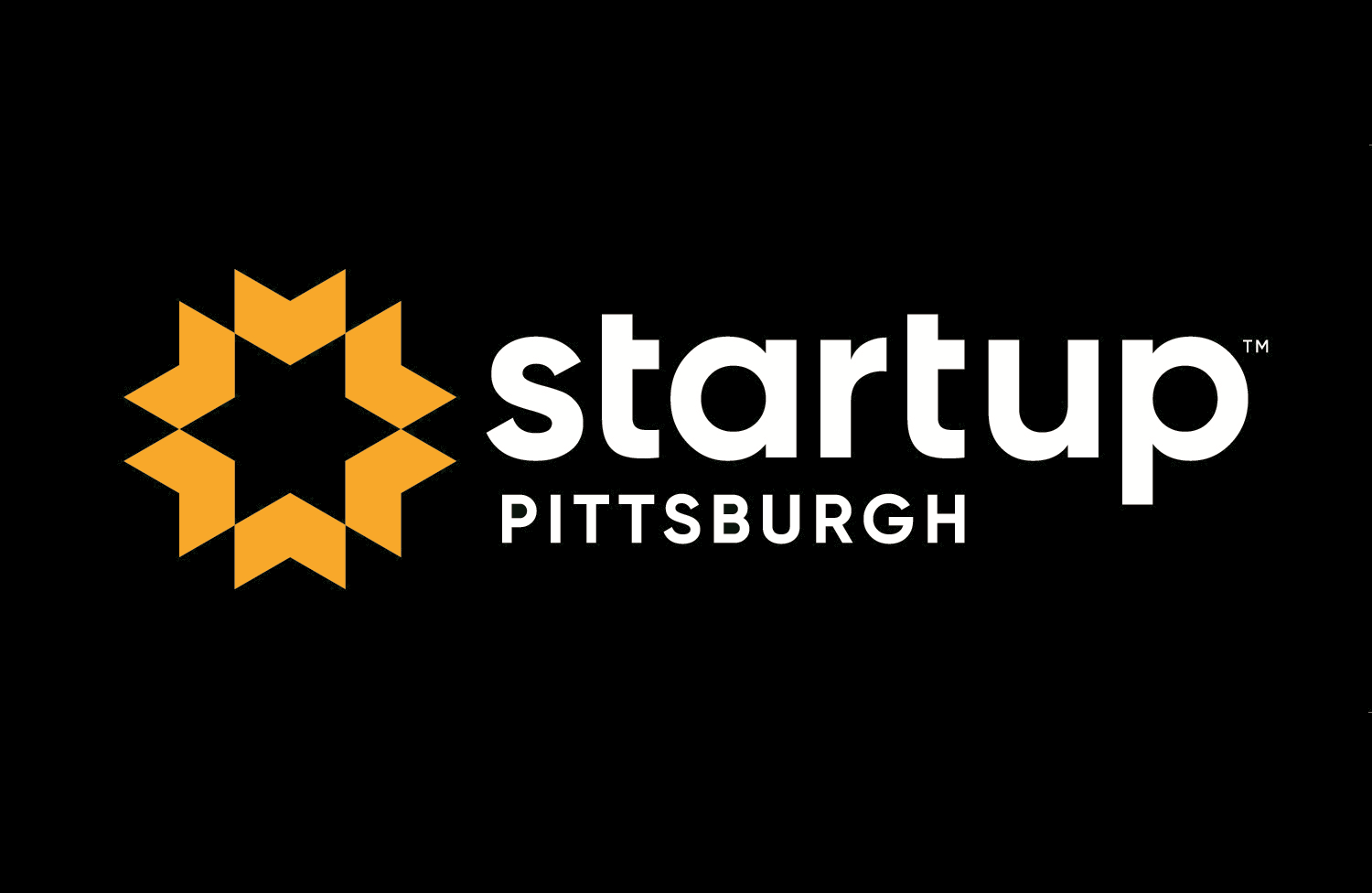Blog Layout
The Startup Pittsburgh Podcast - Ep. 1: Why You Need a Mentor and How to Overcome Common Challenges
Patrick Schober • Oct 28, 2019
The startup life isn’t easy. For founders, a startup means fighting an uphill battle to success—if success ever comes. Sitting in such a high leadership is a lonely endeavor. That’s why we focused on the importance of finding a mentor in the first episode of the Startup Pittsburgh Podcast. After we wrapped up our discussion on mentorship, our members took turns discussing some of the biggest challenges startups face in the early days of their business.
Jessica Jeberley of HRT Solutions (Human Resources)
Part 1: A Mentor is Your Guide to Success
A reliable, trusted mentor can spell the difference between your professional successes and failures. A 2013 survey of successful high level executives found that 80% of them leaned on a mentor in the early stages of their business. A recent Sage survey found 93% of startups agreed that having a mentor was instrumental in helping their business succeed.
If you don’t have a mentor by your side, you’re losing a significant edge against your competition.
What To Look For in a Mentor
A great mentor should:
- Have business experience
- Have industry experience, or at least understand your industry
- Be honest
- Be able to connect you with other industry leaders and professionals who can support your business and professional development
- Be willing to listen to you and support your growth
Where to Find a Mentor
There are countless places to find a mentor. Some places to consider:
- Professional networking events and groups (like BNI, Chamber of Commerce, and others)
- Contacts already in your network (think of the third-party professionals you work with on a regular basis)
- Professional coaches (even a sales coach or marketing consultant can become a trusted voice that helps you grow over time)
Recommended Reading
Reboot: Leadership and the Art of Growing Up, by Jerry Coloanna
Summary:
Jerry is a former founder and investor and now spends his days as an executive coach. In Reboot, Jerry explains the importance of understanding how our past influences the way we lead. One of the recurring themes in Jerry’s book is how lonely it can be as a founder or CEO. In these high leadership positions, entire companies rely on our guidance for direction and important decisions. Having a mentor to lean on and bounce ideas off of reduces the pressure we feel and can improve the decisions we make for our company and stakeholders.
Part 2: Common Startup Challenges
Here’s what each of our professionals had to say:
Alex Seibert of SVN | Three Rivers
(Commercial Real Estate)
Many startups and founders think it’s going to be easy to find a commercial space on their own, but it’s actually quite difficult. And because many are strapped for cash, they avoid getting a commercial broker. What they don’t realize is that it doesn’t cost anything to get a broker. If you’re a tenant, you’ll never have to pay a single fee to the broker.
The moment you decide you want to look for a commercial space, you should connect with a broker. They’ll speed up the process for you and get you into more places. The faster you sign a lease, the faster you can get in there and customize the paint, the walls, the floors, and everything else to make it your own.
Many landlords with push startups into three- or five-year leases, and a lot of startups simply can’t commit to that. So I often recommend starting off in a co-working space. Many co-working spaces will allow you to grow within their office space, so you can move from shared spaces to private offices.
Will Simpson of Simpson & McCrady
(Commercial Insurance)
Some of the biggest questions that startups have about commercial insurance are:
- What kind of insurance do I need?
- How much do I need?
- How do I get started?
The answers are really determined by the decisions you company has made and plans to make in the future. Your real estate decisions, for example, will determine whether or not your rental insurance. Sometimes the deal you enter with clients require you to have extra insurance as well.
Blake Stewart of Stewart Design
(Graphic/Logo Design)
One of the biggest questions startups have is what makes an effective logo and how to implement a logo in their brand.
Your logo is the face of your company. It’s on your website, it’s on your business cards, it’s on your brochures, it’s on the signage on your building. A poorly designed logo can make you look amateurish and hurt you business because of it.
That’s why it’s so important to properly design an effective logo from the beginning so that your business can mature faster.
Chris Vendilli of ProFromGo
(Web Design)
A major question startups have when they go to purchase a website is, “How much is this going to cost?” It’s a tricky question because buying a website is a little like buying a car. It really depends on the options and details you select.
A better question to ask yourself is, “What do I want my website to do?” Once you have this answer, you can get a better estimate. To get to that answer, you can consider questions like:
- Who are my customers?
- Who do I want to connect with?
- What should my website do for them?
Patrick Schober of Poetica Marketing
(Content Marketing)
Businesses that are just getting off the ground don’t always have a major marketing budget. Because of this, some of their most common questions are:
- How much do I need to spend on marketing?
- How do I spend my marketing budget effectively so that I get the biggest ROI?
The two biggest factors that determine any company’s marketing success are:
- The data they have and generate
- The decisions they make with that data
The more data a company has, the better their marketing decisions can become. Whether a company decides to build an internal team or outsource their marketing responsibilities, they should press forward by paying attention to their data.
Kyle Knapp of Viterium
(Information Technology)
Many startups are concerned with their IT budget, so they’re often on the lookout for free tools that are really effective. The G-Suite (Gmail, Google Docs, etc.) can help to keep costs down.
However, this is only good in the early days. What I often see is that after the first year or two in business or after the company starts growing, they need more collaborative solutions. So instead of looking at the free or inexpensive tools in the early days, a company should look at the tools that can empower them to grow over time.
Jessica Jeberley of HRT Solutions (Human Resources)
The most common question we hear is, “How do I know when I should hire a new employee.” No one can really answer this question without first understanding the business. Questions to consider are:
- Can you afford to hire another person?
- Do you really need an employee or should you hire a contractor?
Once someone has these questions figured out, we can discuss payroll, compliance, hiring, and all of the other factors that go into bringing on a new team member.
Craig Pitts of JRG Advisors
(Employee Benefits Advising)
Startups seem to have dozens of questions when they start thinking about benefits. Some of the most common:
- How quickly can I provide benefits?
- What’s it going to cost?
- What benefits should I offer?
The earlier you start thinking about these questions the better. Just about anything is possible, but you need time to pick out the benefits you want to provide and pick the right brokers or vendors to provide the services at the lowest costs.

By Patrick Schober
•
04 Aug, 2021
The History Behind Poetica Marketing I wish I could say the true spark of inspiration behind Poetica Marketing was my idealistic belief that marketing can and should be customized for every business inside agency life, but that wouldn’t quite be the case. I also wish I could say it was because I felt a burning desire to launch something completely my own, but that wouldn’t be the complete truth either. I started Poetica Marketing because I’d been hurt. While working in Downtown Pittsburgh at another agency for a year and a few months, I endured countless leadership changes and management shifts—all of which ended with me suddenly laid off. I remember standing at the bus stop on the corner of Liberty and 7th, calling my wife to tell her the news: I was out of a job. As I returned home and nursed my bruised ego, I realized I couldn’t simply go back to work for someone else; I was too scarred to trust another company with my future. A week later, I started Poetica Marketing. It was exciting and terrifying to commit to a new venture, but there was one constant, nagging worry: Did I miss something? Did I file all of the right paperwork? Do I have the right insurance plan? Am I constantly putting my best foot forward to generate new leads? Why Startup Pittsburgh Is So Powerful for New Businesses At the time, I wished I had something like Startup Pittsburgh to guide me through the early stages. Today, however, I’m proud to be part of an organization that provides completely free consultations to new businesses throughout the Pittsburgh region. Growing and maintaining a business is hard work, but it’s much easier when you have the respect and support of partners who readily provide the best advice possible while simultaneously looking out for your best interests. What Poetica Marketing Provides to Startup Pittsburgh Clientele Inside the Startup Pittsburgh ecosystem, Poetica Marketing specializes in social media, using Facebook, Instagram, LinkedIn, and other platforms to help local businesses grow. That helping hand is important because social media has grown harder and harder for businesses to compete. It’s not exactly the fault of businesses. Instead, platforms like Facebook and Instagram have simply made it harder for business page content to appear in large numbers without paying for ads. By partnering with Poetica Marketing, you unlock years of experience in social media management and content creation with an emphasis on engagement—a factor critical in expanding your reach on social media without spending thousands of dollars on digital advertising. My goal is simple: to put you in the best position possible to leverage social media in conjunction with the rest of your marketing efforts. That means with Poetica Marketing, you can receive: Simple social media consultations Regular coaching sessions Consultations Content creation and management Focusing On What’s Important All of this goes back to the core idea of Startup Pittsburgh: If you’re running a business in Pittsburgh, sound guidance and support should be readily available. As a member of Startup Pittsburgh, I’m offering my time and services so that no other entrepreneurs have to go through the same growing pains I went through. Together, we can make sure all Pittsburgh businesses put their best foot forward when it comes to chasing success.

By Patrick Schober
•
04 Aug, 2021
Like every startup, Startup Pittsburgh was born out of an idea: To build a one-stop all-purpose resource for Pittsburgh startups to spur growth throughout the region. Founded by a group of like-minded and idealistic Pittsburgh professionals, Startup Pittsburgh exists on two important beliefs: Pittsburgh is a great place for businesses—and it’s consistently getting even better every year as the community attracts new talented professionals. Resources for building businesses in Pittsburgh should be readily accessible and, more importantly, consultations and education for startups should be free. By keeping these two beliefs in mind throughout every action we take, Startup Pittsburgh aims to become the region’s go-to resource for startup leaders looking for professional assistance, guidance, and vendors who can assist in generating sustainable growth for years to come. How Startup Pittsburgh Is Structured For maximum impact, Startup Pittsburgh is a collective of professionals and businesses specializing in every area a startup may need advice, guidance, or services. This includes: Legal Guidance - From product patents to partner agreements, our legal experts can offer the advice and services you need to get started. Insurance - Businesses are open to liability, and insurance protects you from serious legal and financial issues. Risk Management - Reducing your risk is a powerful way to protect your company. Graphic Design - From business cards to logos, Startup Pittsburgh can put your best face forward. Marketing and Advertising - One of the most challenging issues of starting a new business is getting the word out! Web Development & Content Creation - Building a website is an important step in launching or rebranding a business. Hiring - Sourcing top talent is a difficult task if you’ve never done it before. Human Resources - Leading a team is a complex challenge, and proper human resources assists in managing employees. Employee Benefits - Keeping employees happy extends far beyond paychecks. Commercial Real Estate - Whether you need an office or a new location for a factory, our team is here. Information Technology - Does your company have the IT infrastructure necessary for success? Investing - If you’ve never worked with investors, you’ll need to learn what they’re looking for! Much more! Who Startup Pittsburgh Is For? As the name suggests, Startup Pittsburgh supports new businesses with limited resources. Although the word “startup” has evolved to generally focus on tech-focused companies with big ideas, Startup Pittsurgh also offers services to traditional businesses getting off the ground. Beyond that, however, we work to serve businesses that are already established and simply need a little extra help. Whether you’re looking for advice on a tax issue or are contemplating your first major marketing campaign, we can help. Growth-Focused Services From Startup Pittsburgh As we continue to assist Pittsburgh’s startup community, here are some of the services and events you’ll find from Startup Pittsburgh: Complimentary Consultations for Pittsburgh Startups Starting and running a business is a complex endeavor, and we believe advice should be free. By completing the form at the bottom of this page, you can address your most pressing startup questions with a member of our team. That specialist will provide expert guidance based on your input. If you decide to follow through on that advice, you can then choose to do business directly with that specialist and his or her company. If you’d like to use someone else, we may be able to recommend a third party you can rely on. Networking Events for Business Leaders As everyone within Startup Pittsburgh knows, running a startup is a chaotic, lonely endeavor. We remove some of the stress by connecting you with like-minded professionals who understand your journey and can offer resources to help you through each day. Follow us on social media or sign up for our newsletter to remain informed on each and every Startup Pittsburgh event! Educational Conference Calls for Pittsburgh Businesses Our monthly conference calls are open to the public and serve two purposes: To educate the startup public about an important trend or factor in business growth and to answer the most pressing business-related questions founders present in the meeting. Questions are answered on a first-come, first-served basis, so be sure to jump in and participate! Training Sessions for Pittsburgh Leaders Our annual seminar is designed to help founders tackle the biggest business challenges to navigate the growing pains common in business. Contact Startup Pittsburgh If you’re ready to jumpstart your business, visit our Resources page or contact us .

By Patrick Schober
•
14 Mar, 2020
One of a startup’s top priorities is exposure. Yes, a successful startup needs strong leadership, a standout team, and a stellar product, but none of those will stay around for long without marketing that reaches the target audience, that group of people who are most likely to buy your product. The temptation to pour money into today’s most common marketing strategies is a strong one. Marketing directors will quickly point to the opportunities on Google Ads, Facebook Ads, Instagram Ads, and email marketing as low-cost, high-win strategies. In some industries, a startup may even find it appropriate to explore direct mail, billboards, or even TV ads, depending on the audience you’re trying to reach. Here’s the problem: Every single one of these avenues costs money. Even worse, you’ll need weeks or even months of dedicated testing to really hone in on your strategy and start seeing a return on your investments. For some startups, that’s the right move. Others, however, may want to explore additional options for reaching their target audience.

29 Feb, 2020
The startup scene has never been bigger in Pittsburgh. From Downtown to the Strip District and from the Strip District to East Liberty, Pittsburgh neighborhoods are seeing explosive growth as more and more startups decide to call the city home. The influx of new businesses has created a greater need for high-quality office spaces. But as founders start their search for their company headquarters, they face challenging questions: Where can I get the best price? How can I get tax breaks? Can I find a landlord who will accept a lease for less than three years? What can I afford? How much do similar companies spend on rent?" These are all important questions, and they can all be resolved with the help of a commercial real estate broker.

02 Feb, 2020
“So I have hired the first of what I hope is many employees at my business and they need health insurance!” I cannot count the number of times I have received that call in the past. And then the mad scramble begins to discuss network options, to get rates and plan information, and to have the plans in place for the first of the month. Oh, and the employee has a doctor’s appointment at 8:00 AM on the first of the month. Great. This is usually how a new startup ends up introducing their employee benefits program. Rushed, last minute, and without the preparation and thought that went into every other decision they made for their business. It doesn’t have to be this way, and it shouldn’t be this way. Look, we all know that time flies and life would be great if we had the time to do everything. We know that is not the case. You are working at the business and on the business at the same time. The right benefit advisor will help guide you through the process, but here are just a few things you should think about and do before starting an employee benefits program. 1. Decide on your benefits philosophy. Yes, your philosophy. Do you want an employee to work for you because you have the best benefits in town or because they believe in your mission? Do you want an employee to leave your company, even though they love the mission, because of the benefits? This will help determine what benefits you offer—medical, dental, vision, life, disability, 401k, tuition credits, etc.— and how much an employee has to pay for the benefits. 2. Decide your budget. How much can the company afford to spend each month? It is very much like our home finances. If we want to buy a new car, there has to be money in the budget. Can the company sustain the benefits once offered? 3. Consider the finer details: As most of my clients find out, there are other decisions to be made: Do you offer more than one plan to choose from? (Yes, that is an option as a startup.) Do you pay toward the employee only or toward the cost of the dependents? Do you cover a domestic partner? Do you cover a dependent after age 26? Do the employees pay for their portion of the premium with pre- or post-tax dollars? Do you have the Plan Document Required to withhold the employee’s premium pre-tax? What does your handbook say on this? 4. Remember the overlooked items. Probably the most overlooked items when offering group insurance plans are the Employee Retirement Income Security Act (ERISA) and the Affordable Care Act (ACA) and the requirements a business takes on as a result of offering the employees benefits. There are a minimum of 12 documents required under ERISA and the ACA that need to be distributed and evidenced to the employees when you have a group benefit plan. Not only are these the most overlooked items but they also carry per-day fines for not being in compliance with laws. Simply put, the fines for not administering benefits correctly could put you out of business. There is a meme out there with “The Duke” John Wayne that says, “Life is Hard, it’s Harder When you’re Stupid.” The quote is most likely fake, but the message is very real. Be smart with your business and contact an employee benefits advisor months before you need the coverage to start and not a day or two before.

18 Aug, 2019
Pittsburgh has proven itself as one of the best locations for founders to seek funding, find talent, and grow their startup into a world-famous brand. With famous startups like Duolingo and 4moms atop the mantle of hometown heroes, there’s no shortage of opportunities for founders in western PA’s biggest city. The tech immersion is hard to miss. Try walking through the Strip District just east of the city and try to avoid seeing an Uber or Argo vehicle collecting gigabytes of data as it navigates the streets around the company office. But these are only what’s out in the public eye. Much of Pittsburgh’s most exciting startup developments are happening in offices and warehouses all over the city. There are plenty of reasons Pittsburgh stands out as the perfect place for founders: 1. A huge talent pool. Pittsburgh is filled with great universities. The city is known for Carnegie Mellon University’s robotics laboratory, but don’t forget about Duquesne University or the University of Pittsburgh, where hundreds of inventions have been patented in the last few years. The city itself is home to about 30,000 undergrads and graduate students each year, many of whom graduate and settle down right in Pittsburgh. But that’s not all. Fortune 500 companies like Google, Uber, Facebook, and others have offices in Pittsburgh, all attracting top talent. Thanks to their influence, the experienced talent pool is growing just as much as the college graduate pool. 2. Affordable housing. Regularly ranked among the most affordable US cities, even the most expensive neighborhoods in Pittsburgh are inexpensive when compared to bigger cities like New York and San Francisco. That alone is enough to regularly draw in rent-weary professionals from nearby metros like Philadelphia and Chicago. 3. Affordable commercial real estate. Commercial real estate is equally competitive in its pricing—especially if you want to be in the heart of downtown. Currently, the city itself offers lower prices per square foot when you compare to suburban-based facilities in nearby towns like Cranberry, where on-site parking is plentiful. 4. Open arms from the top. Mayor Bill Peduto promotes technology advancement within the city—enough that he was willing to make a serious push with Amazon when the company was looking for the perfect location to open its second HQ. Mayor Peduto regularly champions projects and legislation that further business development and tech expansion. 5. Resources. Venture capitalists have invested billions into Pittsburgh startups over the last few years, and there’s no sign of slowing down. As the startup scene continues to heat up, investors are bound to take note, bringing in extra dollars for founders. It’s not only financial support that founders will find here. Resources like Startup Pittsburgh offer guidance on everything a business owner needs to navigate: finances, marketing, hiring, insurance—the list goes on and on. Startup Pittsburgh provides the resources you need to keep your business running smoothly so you can focus on growing your startup. Fill out the form below to tell us what you need help with, and we’ll get back to you as soon as possible.

18 Aug, 2019
The idea was sparked by Rick Farmer, an Account Executive at commercial insurance agency Simpson McCrady. Rick realized something important: Although Pittsburgh was an excellent location for startups , filled with talent and financial supporters, it lacked a single professional network specifically designed for startups. If Rick could pull together enough professionals passionate about helping businesses grow, he could provide local founders with a resource that can answer any business question a founder may have. Rick quickly tapped into Bryan McCann of SVN, a commercial real estate agency, and Crey Keitzer, the CEO of strategic wealth management firm North Star Capital. From there, they added a marketer. And then an IT provider. And then an accounting firm. The pieces began falling into place week by week, until, finally, a dedicated team was assembled. With SVN kindly donating a corner office for early meetings, the group got to work, but the project really started moving when web development company ProFromGo joined. With their web capabilities, they were able to bring the vision to life through the website before you, linking more than a dozen professionals together to help Pittsburgh startups attain the services they need. With the pieces in place, Startup Pittsburgh was ready to begin offering complimentary guidance to Pittsburgh-based founders—with the option to do business with individual members and their business if desired. A Bright Future In the next few months, we plan to continue growing our team, gradually filling in any holes our clients unearth. Services we currently offer: Complimentary consultations. By completing the form below, you can address your most pressing startup questions with a member of our team. That specialist will provide expert guidance based on your input. If you decide to follow through on that advice, you can do business directly with that specialist and his or her company. If you’d like to use someone else, we may be able to recommend a third party you can rely on. Networking events. Running a startup is a chaotic, lonely endeavor. We remove some of the stress by connecting you with like-minded professionals who understand what you’re going through and can offer resources to help you through each day. Conference calls. Our monthly conference calls are open to the public so that founders can call in to have their most pressing business questions answered by our talented members. Training sessions. Our annual seminar is designed to help founders tackle the biggest business challenges to navigate the growing pains common in business. Stay In Touch You can stay on top of Startup Pittsburgh through our social media channels. Follow us on Facebook , Instagram , Twitter , or LinkedIn for access to all of our found-focused content and for a heads-up on all of our events.
Get in touch with Startup Pittsburgh!
How Can We Help?
Thank you for contacting us.
One of our advisors will be in touch soon.
Oops, there was an error sending your message.
Please try again later.
Please try again later.


